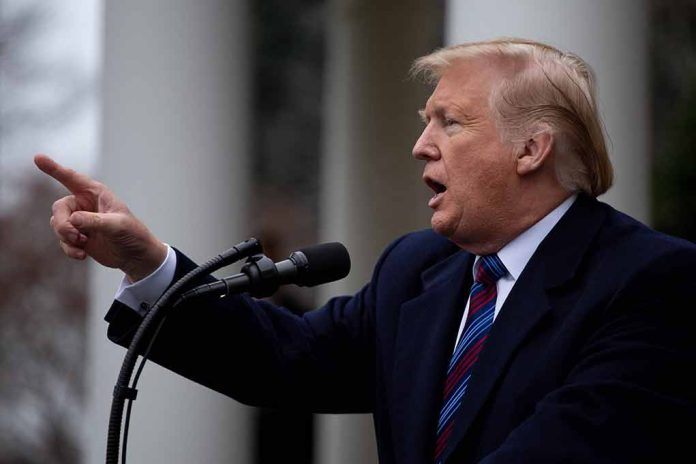
President Donald Trump’s executive order transforms federal employment diversity policy by emphasizing merit-based hiring, igniting a firestorm of debate on workplace equity’s trajectory.
Key Takeaways
- President Trump signed executive orders to scale back employment diversity programs on his first day in office.
- The executive order mandates federal agencies to eliminate DEI initiatives within 90 days.
- Lyndon B. Johnson’s Executive Order 11246, a pillar of affirmative action, was revoked.
- Critics, including civil rights groups, claim the changes undermine workplace equity for minority groups.
- Companies face uncertainty as they navigate the new merit-focused policies.
Trump’s Orders Reshape Federal Contractor Policies
President Trump’s directive, “Ending Illegal Discrimination and Restoring Merit-Based Opportunity,” redefines employment diversity policies for federal contractors. A key focus is dismantling affirmative action and diversity initiatives emphasizing race, gender, or other identity factors, mandating adherence to merit-based hiring principles. The Office of Management and Budget, the attorney general, and the Office of Personnel Management must terminate DEI programs across the federal government.
Federal DEI programs, perceived as violating merit-based hiring, face elimination. The executive order has immediate ramifications on federal employment practices, union contracts, and training policies. Contractors receive a 90-day deadline to conform, starting April 21, 2025, marking a significant shift away from the civil rights era’s affirmative action policies.
Civil Rights Measures Revoked Amid Backlash
The executive order revokes Executive Order 11246, originally signed by Lyndon B. Johnson in 1965 to combat employment discrimination and promote affirmative action. Civil rights groups argue this reverses decades of progress towards workplace equality, diminishing economic opportunities for minority communities. The Congressional Black Caucus and civil rights leaders have voiced strong opposition to what they see as regressive policies threatening the achievements of the civil rights movement.
Supporters of the new executive order, however, argue that it levels the playing field by ensuring all individuals compete based on merit, skill, and qualifications rather than being subjected to what they perceive as preferential treatment. They contend that the focus on merit-based hiring fosters innovation, rewards hard work, and allows the most capable candidates to rise to the top, regardless of race, gender, or background. Advocates of this approach believe it eliminates divisive practices and restores confidence in a system where success is determined by individual effort and achievement rather than mandated quotas or programs.
The Path Forward for Businesses
Businesses face the challenge of adjusting to a federal landscape with the dismantlement of DEI programs. Prominent companies, already scaling back diversity efforts following the Supreme Court ruling against affirmative action in college admissions, are advised to seek legal guidance on the implications of the new order. Legal experts emphasize due diligence as businesses transition to strictly merit-based hiring and promotions.
The debate on workplace diversity policies persists, as civil rights advocates and legal experts anticipate ongoing legal disputes. The complex balance between equal opportunity and merit-based hiring will remain a contentious issue in both political arenas and everyday workplace environments.





